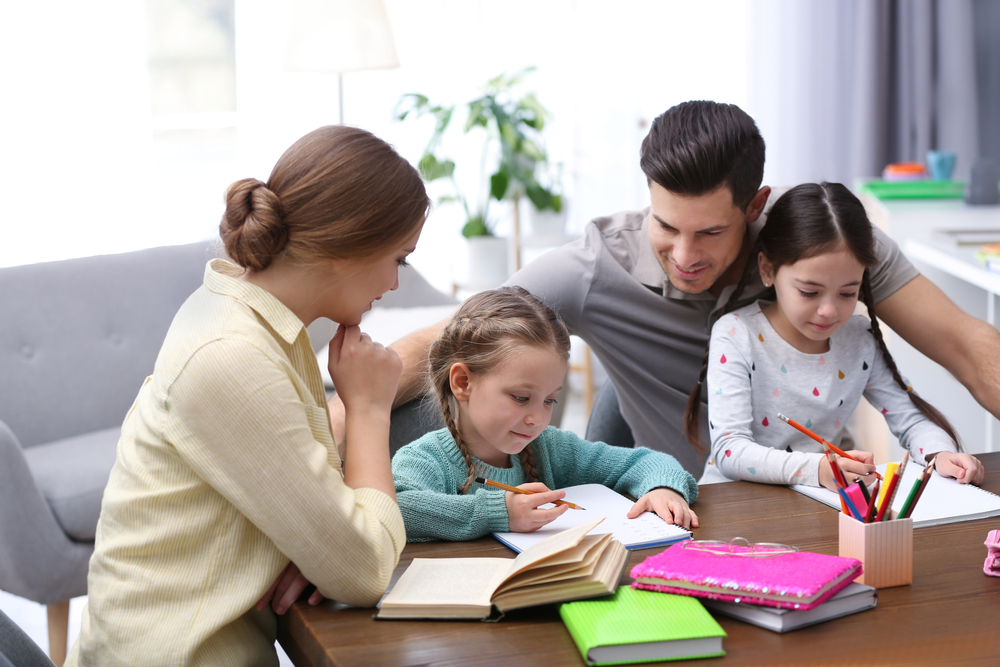Comparison Skills Math Worksheets for Ages 3-5
5 filtered results
-
From - To
Welcome to our engaging Comparison Skills Math Worksheets designed specifically for children ages 3-5! These worksheets are perfect for young learners to develop essential comparison skills such as identifying more, less, and equal quantities. Featuring colorful visuals and interactive exercises, our materials make learning fun and effective. Each worksheet encourages hands-on practice, helping kids sharpen their critical thinking and problem-solving abilities. Ideal for both classroom activities and home learning, these worksheets foster a love for math while building strong foundational skills. Explore our collection and watch your little ones excel in comparing numbers and objects as they play and learn!
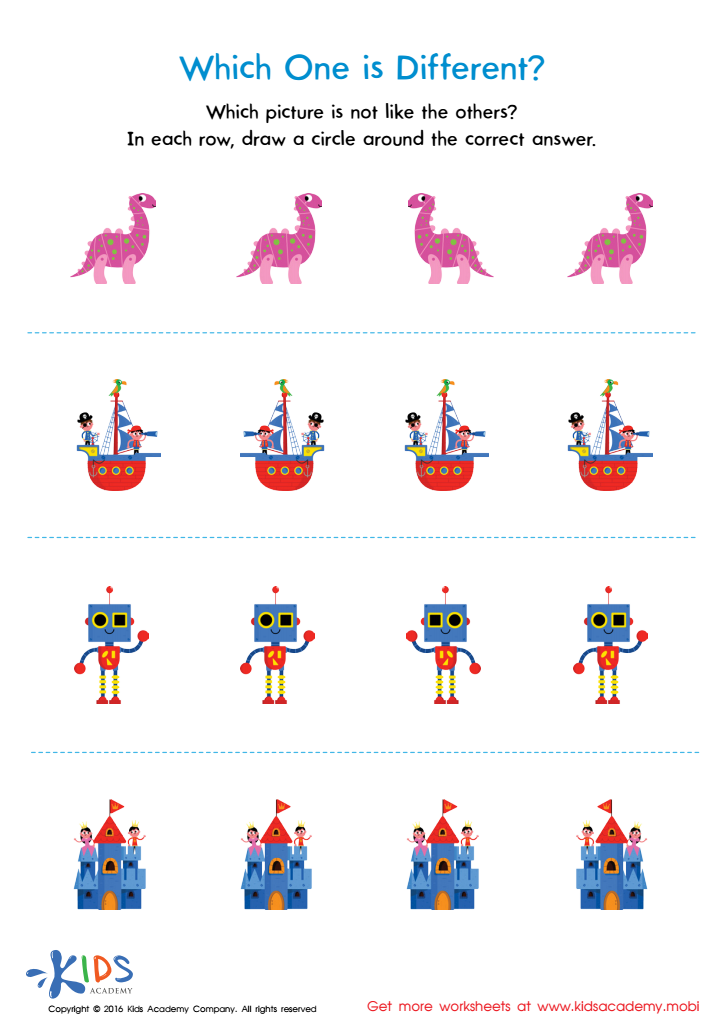

Which One Is Different Worksheet
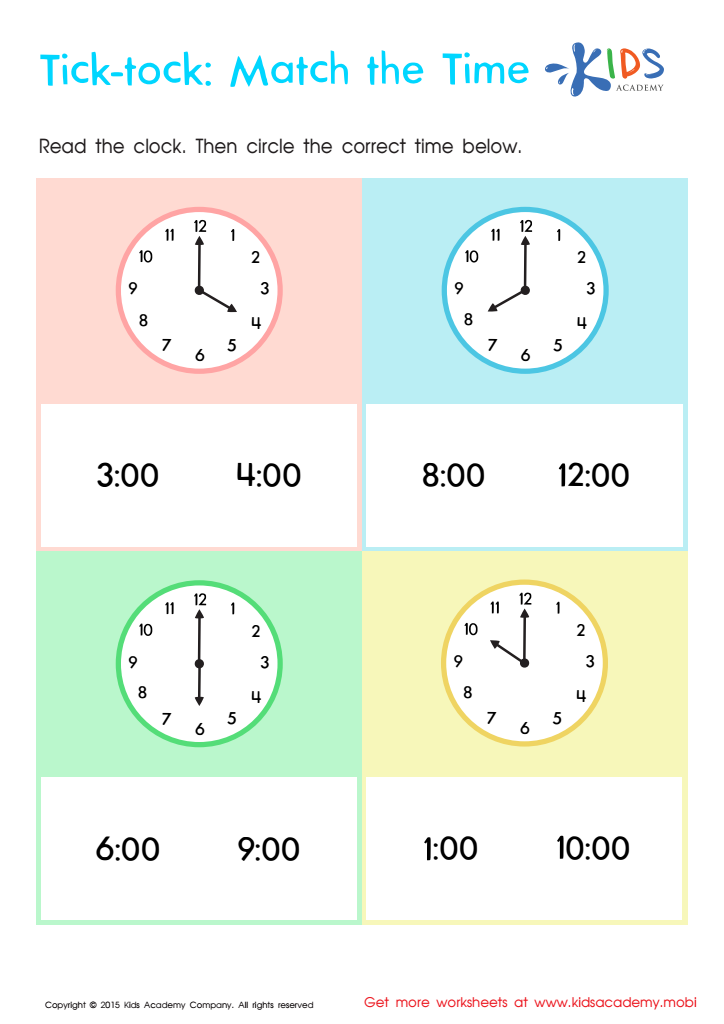

Telling The Time Worksheet: Part 4
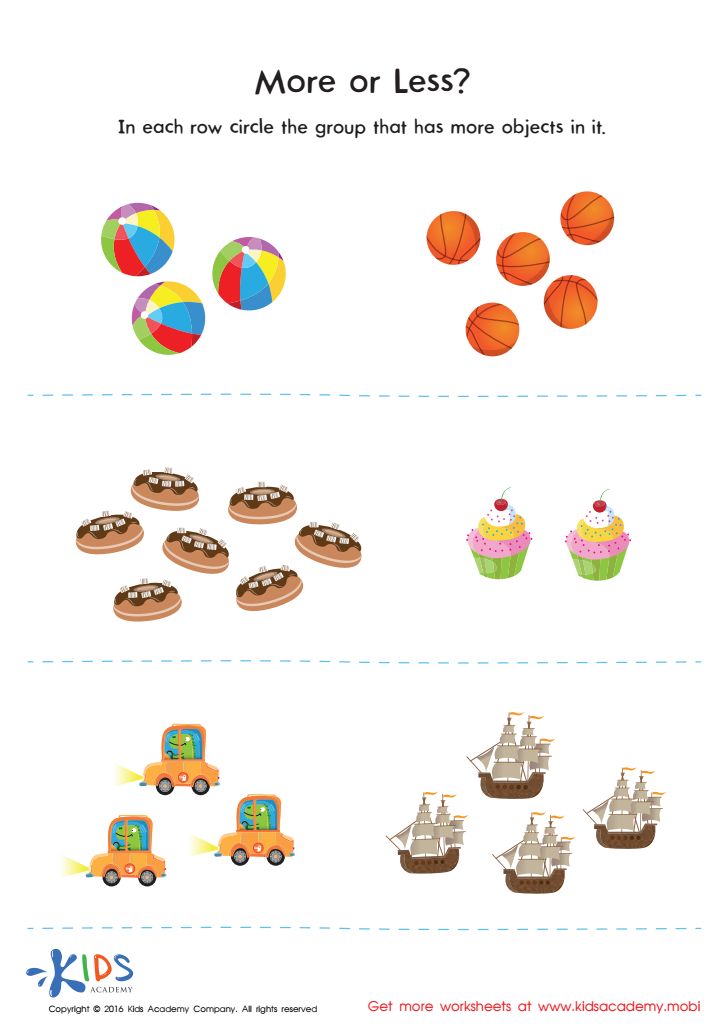

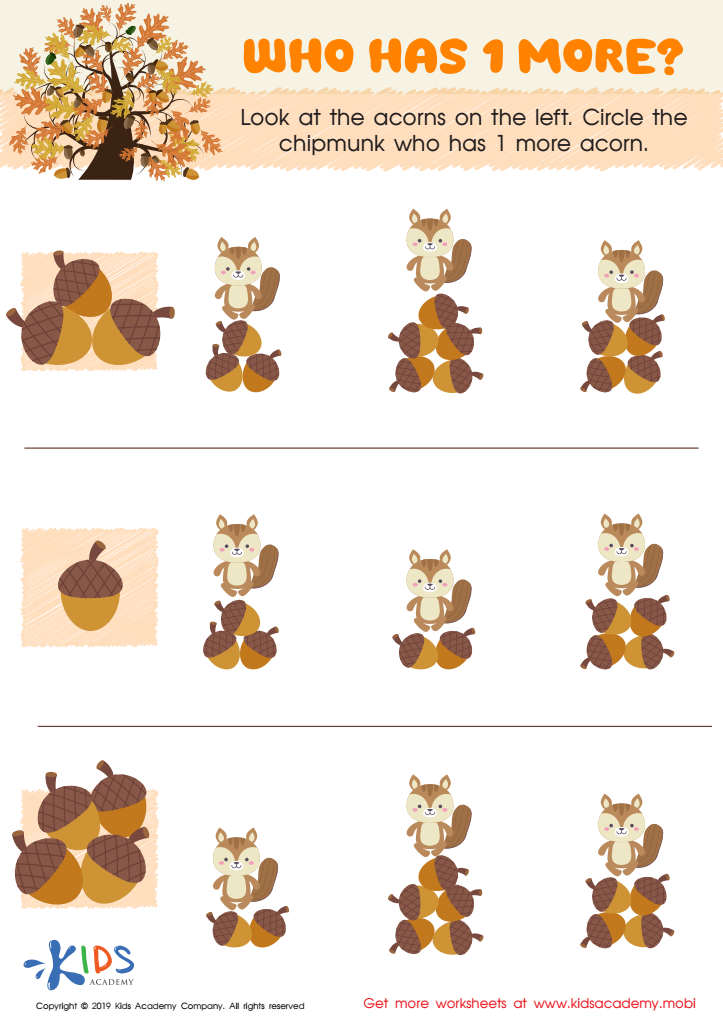

Who Has 1 More? Worksheet
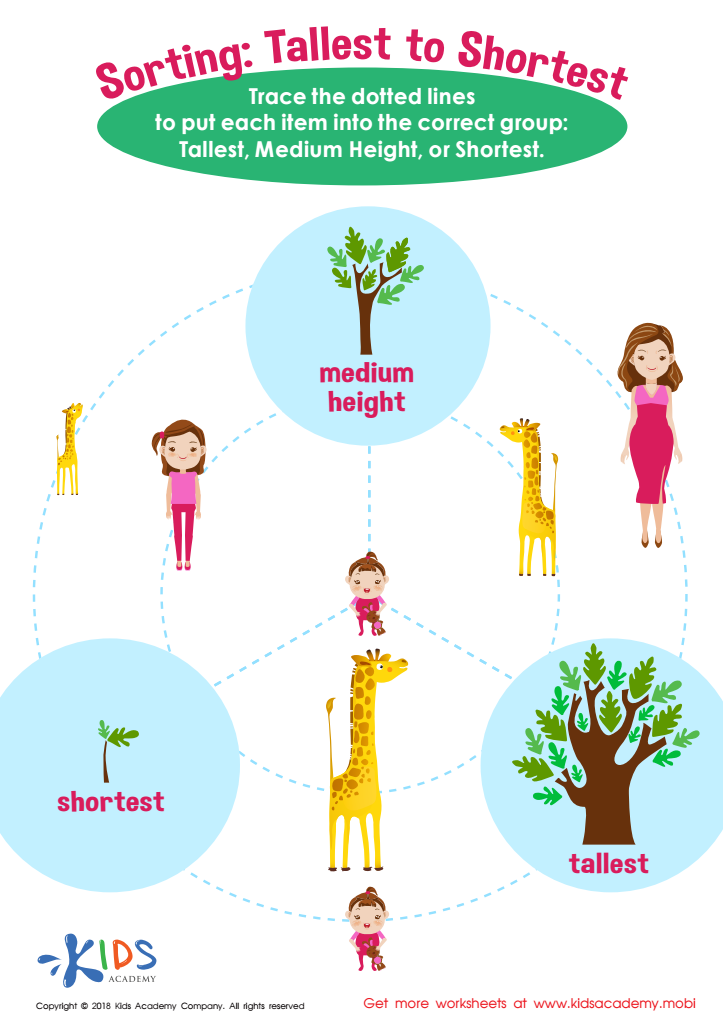

Sorting: Tallest to Shortest Worksheet
Comparison skills are vital for young learners aged 3-5 as they lay the foundation for critical mathematical understanding and reasoning. At this developmental stage, children are naturally curious, and fostering their ability to compare and contrast objects, quantities, and sizes enhances their cognitive abilities.
Engaging children in comparison activities helps them to recognize differences and similarities, cultivate problem-solving skills, and develop language when describing these observations. For example, when children compare groups of objects (like blocks or snacks), they enhance their counting, grouping, and categorization skills, which are key precursors to future mathematical operations like addition and subtraction.
Moreover, comparison skills support logical thinking and decision-making. When children are encouraged to examine attributes like length, height, or weight — for instance, comparing a tall tower of blocks to a shorter one, or the weight of two fruits — they begin to understand concepts of measurement and balance, which are crucial in STEM education.
Ultimately, by nurturing comparison skills, parents and teachers empower children to become confident, analytical thinkers, equipped with the skills necessary for successful lifelong learning in mathematics and beyond. This awareness not only enriches their early educational experiences but also prepares them for more complex problem-solving in the years to come.
 Assign to My Students
Assign to My Students










